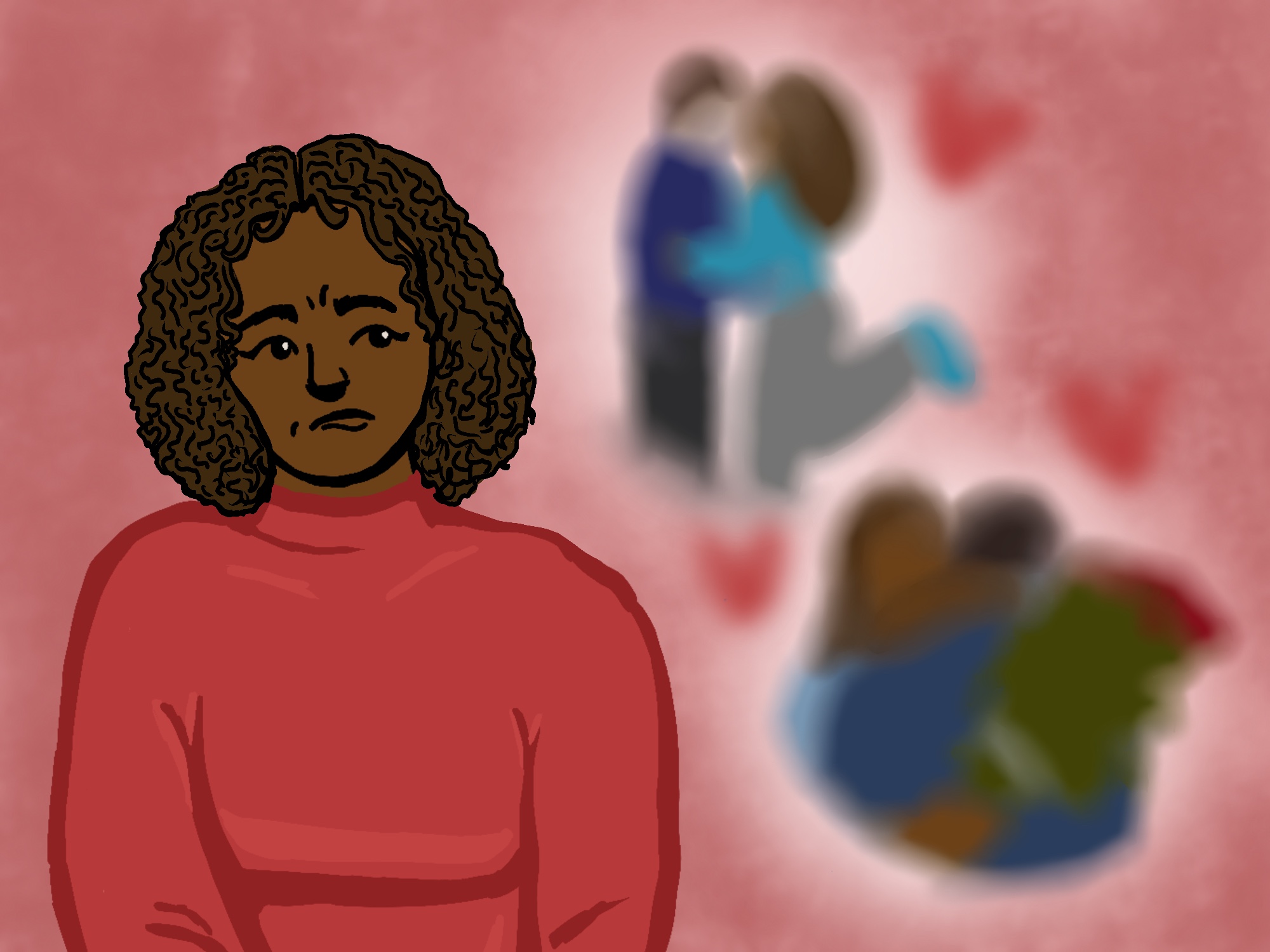“That couple looks so cute, they’ll probably get married.”
I’ve lost count of how many times I’ve heard that about two people, only for them to break up a few weeks later. College relationships are chaotic, unpredictable, short-lived and never quite what they seem.
Everyone seems to have something going on in the relationship department. Only now, it’s not called relationships.

It’s situationships, friends with benefits, sneaky links, one-night stands, dating but not serious, flings or open relationships.
There’s a word for every dynamic, a label for every blurry line.
The question becomes: What do you actually want?
Do you want something serious, long-term, low commitment, purely physical or totally undefined?
Whatever it is, there’s probably a name for it, and yet, that’s the problem. Everyone wants something different, but no one communicates it. That’s how we end up with so many college students “heartbroken,” “confused” or “deep in denial.”
College is the time for exploration — emotionally, romantically, academically and everything in between.
Everyone’s doing what feels right for them at the moment, and often, that means not thinking much about the other person involved.
It’s a time when people often neglect how their actions may impact those around them. This makes sense because you’re surrounded by thousands of new people, new experiences and the pressure to “figure yourself out.”
But in the process, a lot of people end up treating relationships — or whatever we’re calling them — like social experiments. Someone’s feelings become “doing it for the plot” or a product of boredom.
One person’s fun can be the reason another person walks away with trust issues and trauma.
At what point do curiosity and self-discovery morph into carelessness? Is the hurt worth the growth that comes after? Or is all this just an inevitable learning experience we all need to face and accept?
Everyone is something to someone, but no one’s really sure what. Though there’s a name for every type of connection, we are still confused.
Generation Z has reshaped romance by normalizing and romanticizing complex connections. Situationships seem to be associated with Gen Z terminology, a concept people often criticize because of its confusing tendencies yet still crave.
Situationships and variations of a relationship have become a mask for loneliness.
Everyone fears being alone and craves attention and validation. Having a “significant other” or a “roster” indicates social approval while being single invites pity.
Everyone wants the picture-perfect, Instagram-worthy side of romance — the curated moments that appear cute from afar. As long as it looks good, people assume you’re happy and winning and may even grow jealous.
Romance fizzles into the idea of having a person to celebrate on Valentine’s Day or National Boyfriend Day, whether the connection is real or not. Authenticity takes a back seat to aesthetics. It becomes a vicious endless cycle.
This questions the true definition of the college experience.
Ultimately, college is about the freedom to make your own choices and take risks without the immediate consequences that might follow in other stages of life. With so many people and so much anonymity on a college campus — especially in a busy city like Boston — accountability fades, giving you more room to navigate without being closely scrutinized.
It becomes less about what a college student actually wants and more about what they have the liberty to do or get away with. That’s the fun — anything is possible and there are no rules.
Most college students want some form of connection but not a relationship. They want consistency without labels and intimacy without expectations and pressure. It’s complicated, human and really messy.
Sometimes, they just want to have an experience — something to check off their bucket list. But this detachment often leads to students feeling used or confused.
Many stay in these situations because they convince themselves they want what the person is offering, or they may be afraid to ask for more, fearing they’ll lose them entirely.
It often becomes disrespectful, yet people don’t leave because they’d rather have part of someone than none at all. There’s the underlying fear of rejection, being friend-zoned or feeling replaceable.
This poses the question: Are situationships truly healthy, or is it just “not that serious?”
In the midst of all the confusion and back-and-forth, people make assumptions and overthink. What gets lost in translation is that communication doesn’t have to be complicated — we can just talk about it.
Yet, our generation’s preferred mode of communication is, “But I’ve been snapping you,” or “I liked your Instagram story,” all while avoiding real, face-to-face, honest conversations. It’s all become a game.
But let’s be honest, it wouldn’t feel as entertaining without the games and the guessing.
Direct communication? That takes away the thrill.
So maybe that’s what college students are looking for — something exciting, unpredictable and a little chaotic.
There’s a constant struggle between wanting intimacy and not wanting obligations. It’s definitely possible to have a relationship in college for those who want it — as long as it’s communicated between both people. Although, being in a relationship comes with unspoken rules about what is morally acceptable and not.
Even something as harmless as a casual conversation between a girl and a guy can be labeled “micro-cheating” or disloyal. It’s that pressure of constantly having to answer for your actions that many college students seem to be avoiding.
But deep down, what do college students really want? Connection? Maybe. Freedom? Definitely.
But more than anything, we want clarity — from ourselves and from each other.
So I guess that leaves us with one question…what do you want?










